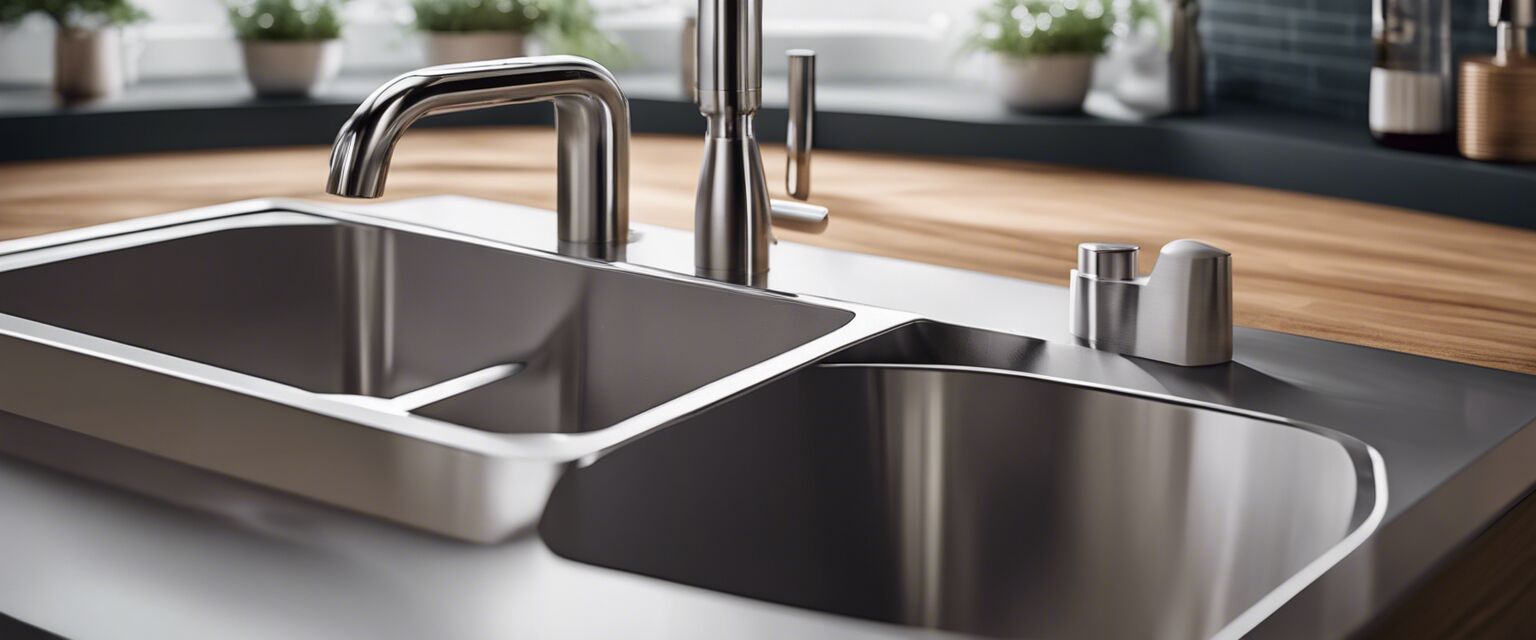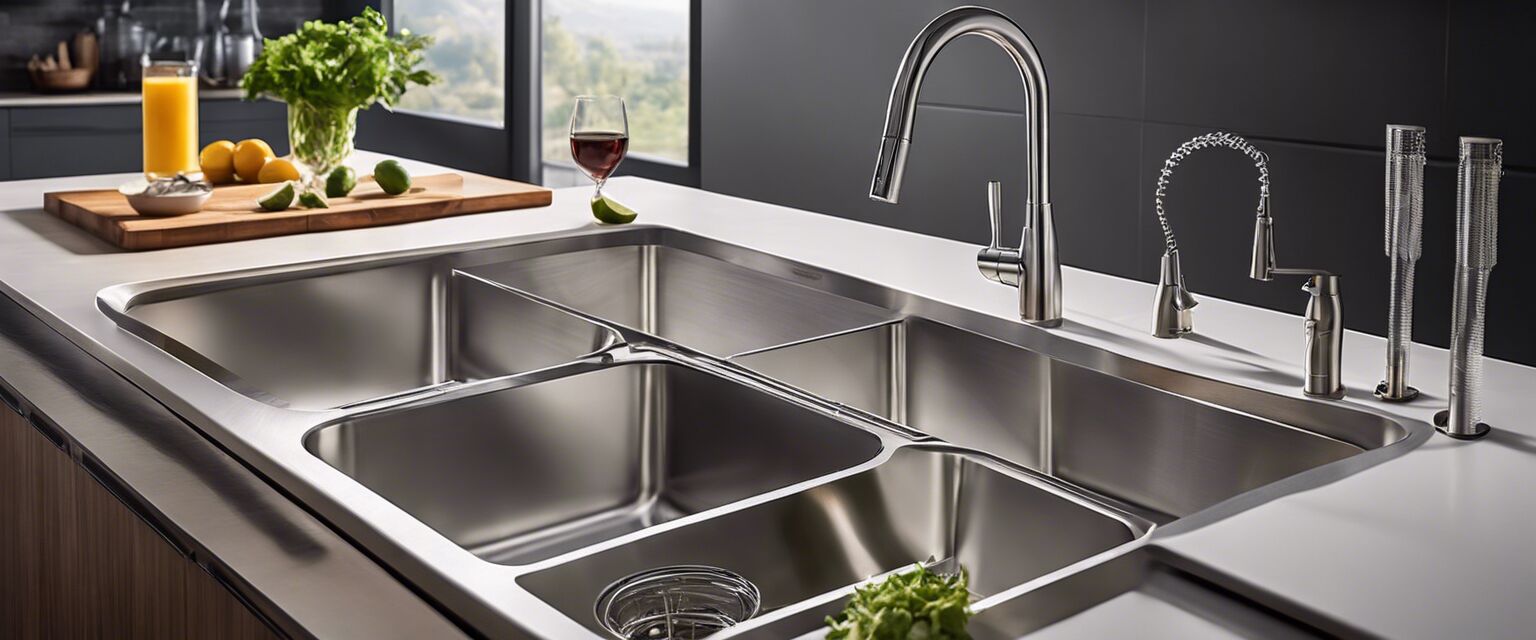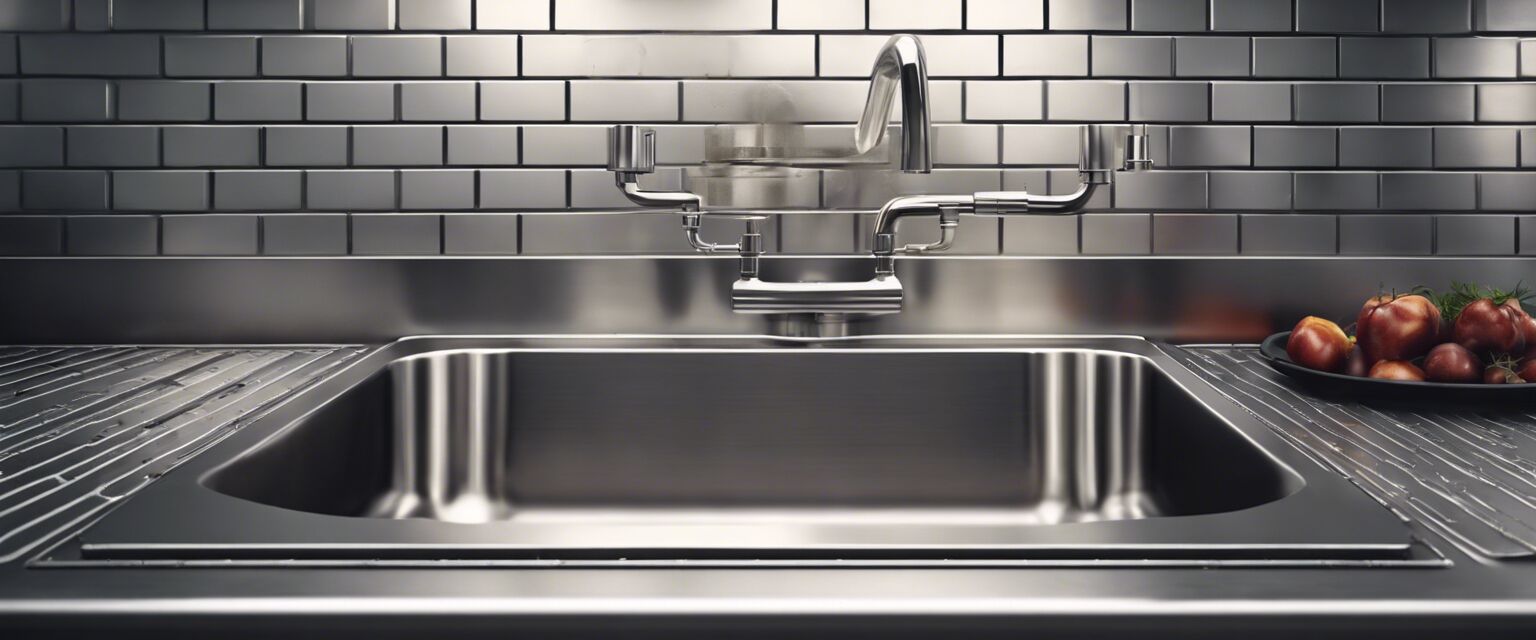
Hand Wash Sinks
Key Takeaways
- Hand wash sinks are essential for maintaining hygiene in commercial kitchens.
- Proper installation and placement of hand wash sinks enhance workflow.
- Choosing the right materials is crucial for durability and ease of cleaning.
- Regulatory compliance must be considered when selecting hand wash sinks.
Hand wash sinks are a crucial component in maintaining hygiene standards in various institutions, including restaurants, schools, and hospitals. These sinks are specifically designed for hand washing, ensuring that staff can easily clean their hands and prevent the spread of germs. In this article, we will explore the essential features, benefits, types, and installation tips for hand wash sinks.
Why Are Hand Wash Sinks Important?
Hand wash sinks serve a vital role in promoting cleanliness and preventing foodborne illnesses. They are specifically designated for hand washing, which is essential in commercial kitchens where food safety is a priority.
Benefits of Hand Wash Sinks
- Hygiene: Ensures compliance with health regulations.
- Convenience: Easily accessible for staff, promoting regular hand washing.
- Durability: Made from materials that withstand heavy use.
Types of Hand Wash Sinks
There are various types of hand wash sinks available, each designed to meet specific needs. Hereâs a breakdown of the most popular types:
| Type | Description | Best For |
|---|---|---|
| Wall-Mounted Sinks | Mounted on the wall, saving floor space. | Small kitchens or limited spaces. |
| Free-Standing Sinks | Portable sinks that can be placed anywhere. | Mobile kitchens or temporary setups. |
| Drop-In Sinks | Installed in countertops for a seamless look. | Permanent installations in larger kitchens. |
Materials Used in Hand Wash Sinks
Choosing the right material for hand wash sinks is essential for durability and maintenance. Here are some common materials:
- Stainless Steel: Resistant to rust, easy to clean, and highly durable.
- Plastic: Lightweight and cost-effective but less durable.
- Composite Materials: Offer a balance between durability and aesthetics.

Installation Tips for Hand Wash Sinks
Proper installation is key to ensuring that hand wash sinks function efficiently. Here are some tips:
- Location: Place sinks in easily accessible areas near food preparation zones.
- Compliance: Follow local health regulations for installation height and accessibility.
- Plumbing: Ensure proper plumbing connections for hot and cold water supply.
Maintenance of Hand Wash Sinks
Regular maintenance is essential to keep hand wash sinks in good condition. Here are some maintenance tips:
- Clean sinks daily with non-abrasive cleaners.
- Check for leaks and repair immediately.
- Inspect plumbing connections regularly to ensure functionality.

Regulatory Compliance
When selecting and installing hand wash sinks, itâs crucial to ensure compliance with local health codes. This may include:
- Specific sink dimensions.
- Requirements for hot water availability.
- Accessibility standards for all staff.
Further Reading
For more information on similar products, check out our other categories:
Pros
- Promotes hygiene and reduces contamination.
- Available in various styles to fit any kitchen layout.
- Durable materials ensure long-term use.
Cons
- Can be costly depending on materials and installation.
- Requires regular maintenance to keep functional.
- Space considerations may limit options in smaller kitchens.
Beginners Section
If you're new to selecting hand wash sinks, here are some tips to get you started:
- Assess your kitchen space before choosing a sink type.
- Consider the volume of hand washing required daily.
- Consult with health department regulations in your area.








